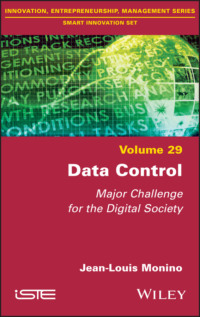Jean-Louis Monino - Data Control

Businesses are becoming increasingly aware of the importance of data and information. As such, they are eager to develop ways to manage them, to enrich them and take advantage of them. Indeed, the recent explosion of a phenomenal amount of data, and the need to analyze it, brings to the forefront the well-known hierarchical model: Data, Information, Knowledge. <P> Data– this new intangible manna – is produced in real time. It arrives in a continuous stream and comes from a multitude of sources that are generally heterogeneous. This accumulation of data of all kinds is generating new activities designed to analyze these huge amounts of information. It is therefore necessary to adapt and try new approaches, methods, new knowledge and new ways of working. This leads to new properties and new issues as a logical reference must be created and implemented. At the company level, this mass of data is difficult to manage; interpreting it is the predominant challenge.









